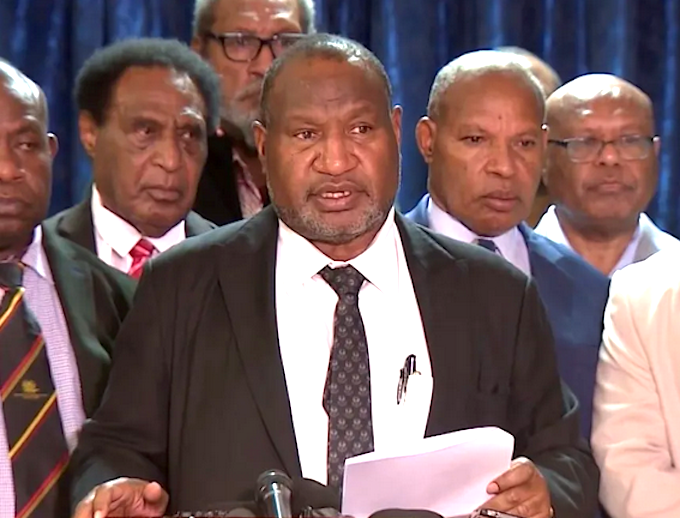
Papua New Guinea’s prime minister says he is confident he can retain power in the wake of the recent riots.
Prime Minister James Marape claims he has the direct support of more than 50 MPs from his own party as well as coalition partners in the 111-seat Parliament.
The Black Wednesday riot claimed the lives of more than 20 people and the Chamber of Commerce is estimating the cost to businesses at more than one billion kina mark (NZ$ 440 million).
- LISTEN TO RNZ PACIFIC WAVES: ‘We want to see tangible changes, we want to see actual improvements happening in the economy’ – PNG correspondent Scott Waide
But despite the departure of several back benchers from the government’s ranks, Marape has been seen busy working to strengthen his coalition support and placate the public.
RNZ Pacific PNG correspondent Scott Waide said the deadly riots could not have come at a worse time for Marape, with the protection of new governments in PNG against leadership challenges coming to an end next month.
“A lot of people feel that he’s being supported, with the government ranks there’s not enough people talking about his removal. That’s the general sentiment that many people have expressed,” Waide said.
“He’s articulated a figure between 51 and 54. He’s basically satisfying coalition members so the defence minister has been changed, he’s tried to appease the public by removing Ian Ling-Stuckey as treasury minister and taken over.
“The United Resource Party that belongs to William Duma has been given a few portfolios, so a lot of political movement to shore up the numbers to satisfying the coalition partners and appease the public.”
Significant losses
The Port Moresby Chamber of Commerce said losses reported by business after the unrest two weeks ago now stands at 1.27 billion kina.
Chamber president Ian Tarutia said this figure could increase.
The National newspaper reports that the business group has compared the impact of the rioting and looting to a natural disaster and they want the government to respond with that in mind.
They have already sought an immediate capital injection of up to one billion kina.
Marape has promised a relief package for businesses, which would include a loan scheme, tax holiday and start-up capital.
This article is republished under a community partnership agreement with RNZ.











































